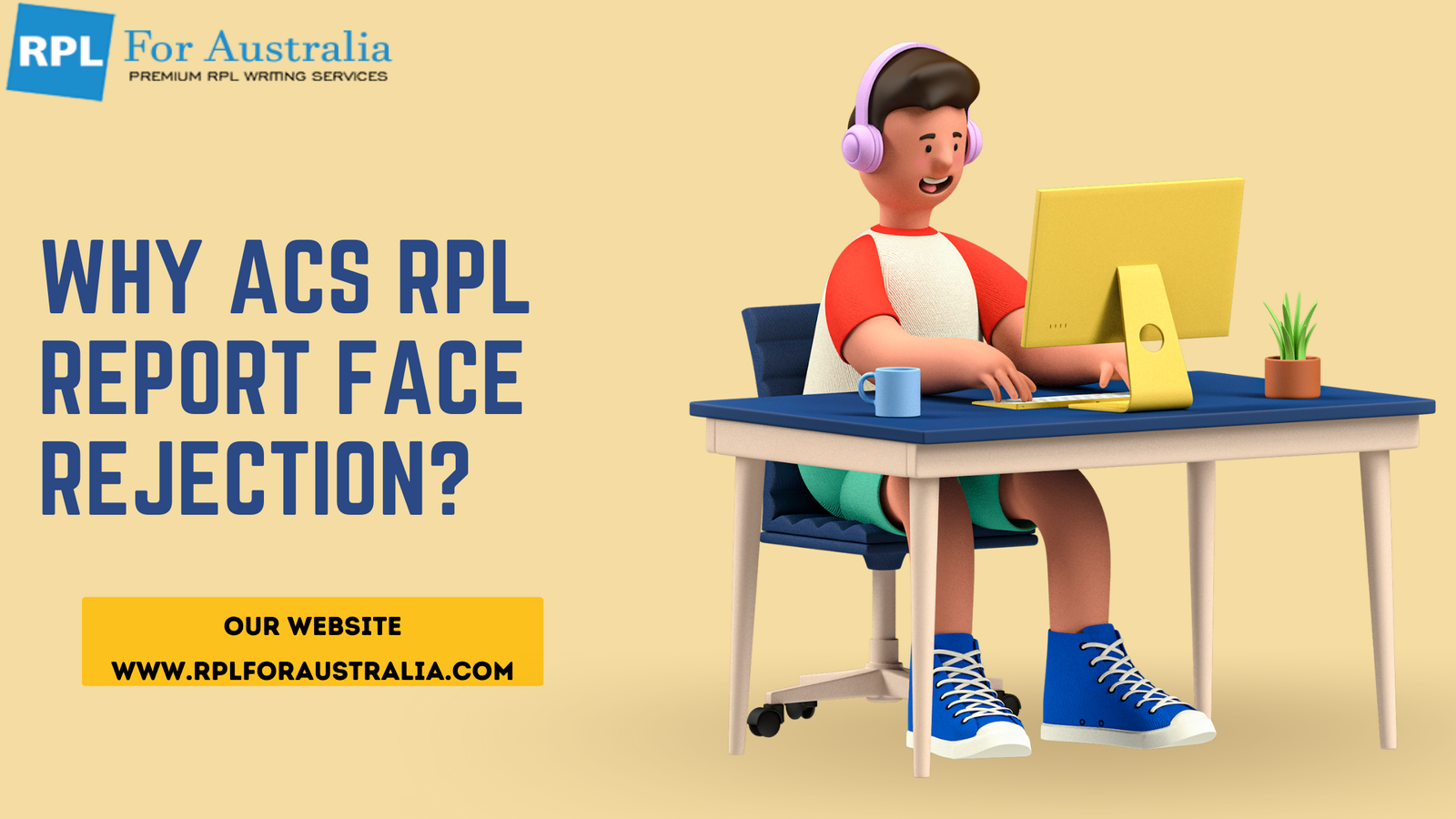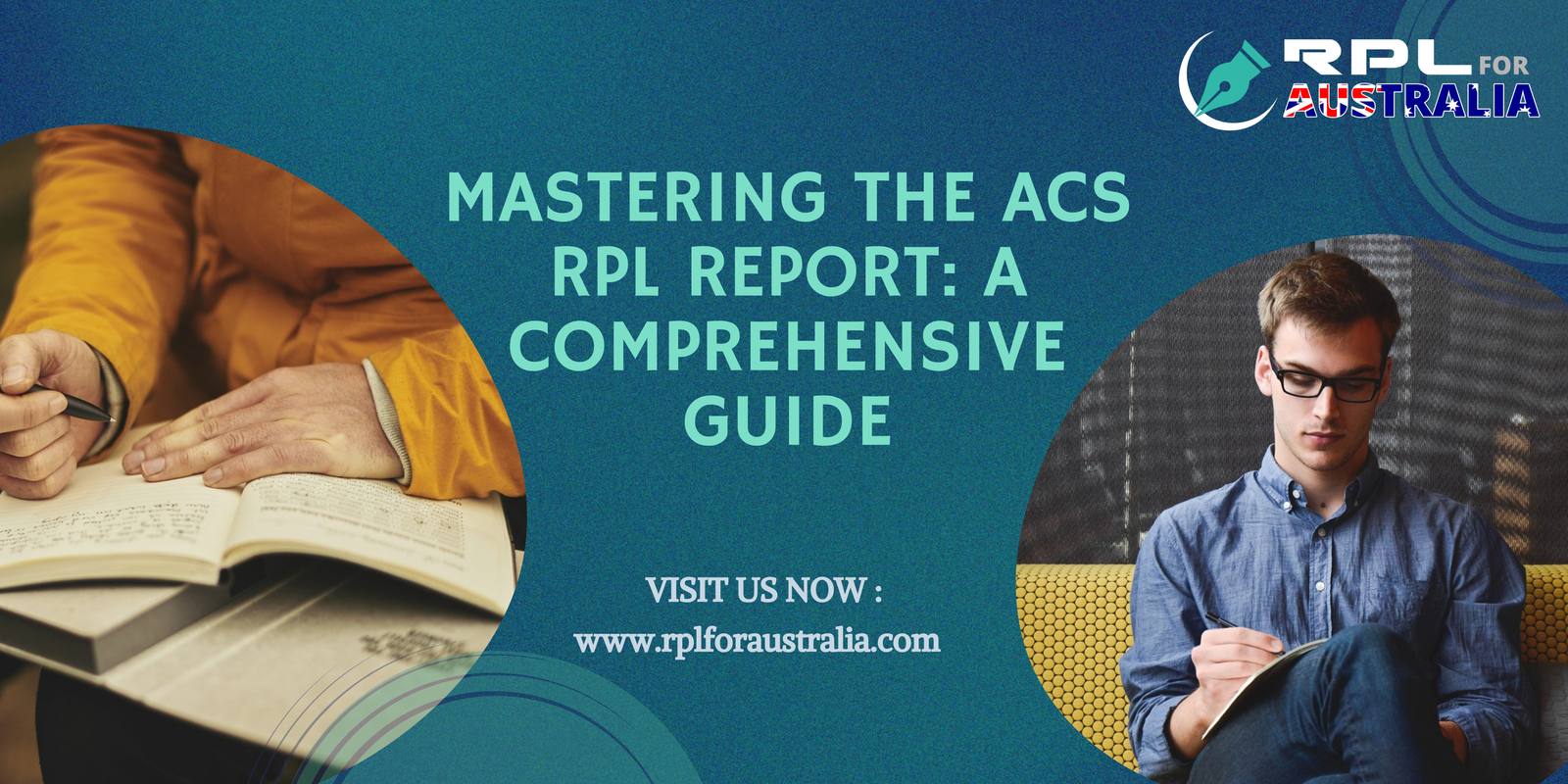In today’s interconnected world, the globalization of industries and the pursuit of diverse career opportunities have made skilled migration a sought-after pathway for individuals aspiring to broaden their professional horizons abroad. However, the process of securing a skilled migration visa can be intricate, requiring meticulous attention to detail, thorough documentation, and adherence to specific requirements set by the destination country.
This is where the (Australian Computer Society) ACS RPL report comes into play as a crucial component in the skilled migration visa application process.
The ACS RPL report holds significant importance for individuals seeking to migrate to Australia, particularly those whose qualifications may not align precisely with Australian standards or those without formal tertiary education.
This report offers applicants an opportunity to showcase their relevant work experience, accomplishments, and competencies to the ACS, acting as a bridge between their existing qualifications and the requirements set by Australian immigration authorities. By presenting a well-structured and persuasive RPL report, candidates can provide compelling evidence of their expertise and convince the ACS of their ability to contribute to the Australian workforce.
In this captivating blog post, we will delve deeper into the significance of the ACS RPL report and how it can unlock the doors to your dreams of migrating to Australia. We will explore the key elements that make a compelling RPL report, understand the assessment process carried out by the ACS, and describe how a strong report can improve your chances of receiving a skilled immigration visa.
So, fasten your seatbelts as we embark on an intriguing journey of skill recognition and visa success, paving the way for exciting professional opportunities in the land down under.
Understanding the Significance of Skilled Migration
- Skilled migration offers individuals the opportunity to pursue better employment prospects and higher living standards in a foreign country.
- Australia is a popular destination for skilled migrants due to its strong economy, quality of life, and welcoming attitude towards migrants.
- Skilled migration allows individuals to broaden their professional horizons and gain valuable international experience.
- It enables individuals to contribute their skills and expertise to the workforce of the destination country, promoting economic growth.
- Skilled migrants often bring diverse perspectives, cultural enrichment, and innovation to their new communities.
- Skilled migration can lead to personal growth, cultural exchange, and the opportunity to build global networks.
- It allows individuals to escape political, social, or economic instability in their home country and seek a better future elsewhere.
- Skilled migration often leads to improved career prospects, higher earning potential, and better work-life balance.
- It promotes knowledge transfer and skills development, benefiting both the migrant and the destination country.
- Skilled migration can positively impact the individual’s family, providing better educational opportunities and quality of life for their children.
Demystifying the ACS RPL Report
To gain entry into Australia through a skilled migration visa, applicants often need to demonstrate their skills and qualifications through the ACS Skill Report. This report is especially crucial for individuals whose qualifications do not align precisely with the Australian standards or those without formal tertiary education.
Here’s a breakdown of the significance of the ACS RPL report in gaining a skilled migration visa:
Skill Demonstration: The ACS RPL report provides a platform for applicants to showcase their skills, knowledge, and experience in their respective fields.
Qualification Alignment: For individuals whose qualifications may not align precisely with Australian standards, the RPL report allows them to demonstrate their competence and relevance to the Australian job market.
Work Experience Emphasis: The report highlights an applicant’s work experience, accomplishments, and responsibilities, giving a comprehensive overview of their professional journey.
Bridging Qualification Gaps: The ACS RPL report acts as a bridge between existing qualifications and the specific requirements set by Australian immigration authorities, increasing the chances of visa approval.
Evidence of Competency: By providing detailed examples of projects, responsibilities, and outcomes, applicants can offer concrete evidence of their skills and competency.
Convincing the ACS: A well-structured RPL report showcases an applicant’s ability to contribute to the Australian workforce, increasing the likelihood of a positive assessment by the ACS.
Alternative for Formal Education: The RPL report is especially crucial for individuals without formal tertiary education, allowing them to demonstrate their practical knowledge and experience.
Reflecting Continuous Learning: The report may include information about relevant training, certifications, and professional development activities, emphasizing the applicant’s commitment to continuous learning and staying updated with industry trends.
Enhancing Visa Application Strength: A successful ACS RPL report strengthens the overall visa application, demonstrating the applicant’s suitability for the skilled migration program.
Pathway to Professional Growth: The ACS RPL report serves as a tool for skilled migrants to unlock opportunities for professional growth and advancement in their chosen field in Australia.
By understanding the significance of the ACS Skill report and investing time and effort into its preparation, applicants can increase their chances of securing a skilled migration visa and pursuing their aspirations in Australia.
The Key Elements of a Compelling RPL Report
Crafting an impressive RPL report is an art that requires careful attention to detail. Here are some key elements that can make your report stand out:
a) Personal Statement: Begin with a concise introduction that highlights your professional journey, motivation for migration, and career aspirations.
b) Project Reports: Showcase your technical skills and expertise by describing significant projects you have undertaken. Emphasize your role, responsibilities, challenges faced, and outcomes achieved.
c) Continuing Professional Development (CPD): Detail any relevant training, courses, certifications, or workshops you have completed to enhance your skills and stay updated with the latest industry trends.
d) References and Supporting Documents: Include letters of recommendation, employment certificates, and any other documents that validate your work experience and skill set.
The ACS Assessment Process
After submitting your RPL report to the ACS (Australian Computer Society), your application will undergo a thorough assessment to determine the suitability of your skills for a skilled migration visa. The assessment process encompasses a detailed evaluation of various aspects, including your academic qualifications, work experience, and the content of your RPL report.
The ACS assessors will carefully review your educational background, ensuring that it aligns with the required standards and is relevant to your nominated occupation. They will also scrutinize your work experience, verifying the duration, level of responsibility, and skills utilized in your previous roles. Additionally, the assessors will meticulously examine the content of your RPL report, assessing its accuracy, consistency, and adherence to the guidelines provided by the ACS.
It is vital to ensure that your RPL report reflects a comprehensive and honest representation of your skills and achievements. Any inconsistencies or discrepancies may result in delays or a negative assessment outcome. By adhering to the ACS guidelines and presenting a well-structured and compelling RPL report, you enhance your chances of a positive assessment and pave the way for a successful skilled migration visa application.
Unlocking the Door to a Skilled Migration Visa
A successful ACS RPL report serves as a key to unlocking the door to a skilled migration visa. By effectively showcasing your skills, knowledge, and experience, the report demonstrates your competency and professional relevance to the Australian job market. It provides concrete evidence of your expertise, which strengthens your visa application and increases your chances of approval.
The ACS RPL report serves as a testament to your abilities, assuring the Australian authorities that you possess the necessary skills to contribute to the country’s workforce. It demonstrates that you have the potential to make a valuable and meaningful impact in your nominated occupation.
By investing time and effort into crafting a compelling and well-structured RPL report, you enhance your prospects of obtaining a skilled migration visa and embarking on a new chapter of your professional journey in Australia.
Conclusion
Securing a skilled migration visa is a life-changing opportunity that opens doors to new experiences and professional growth. The ACS RPL report acts as a crucial tool in the visa application process, allowing skilled migrants to showcase their expertise and bridge any gaps in qualifications.
By following the guidelines and investing time in crafting an exceptional report, you can enhance your chances of securing your dream visa and embarking on an exciting journey toward a brighter future in Australia.
Remember, the ACS Skill report is not just a document; it is your key to unlocking a world of possibilities in a new land.








